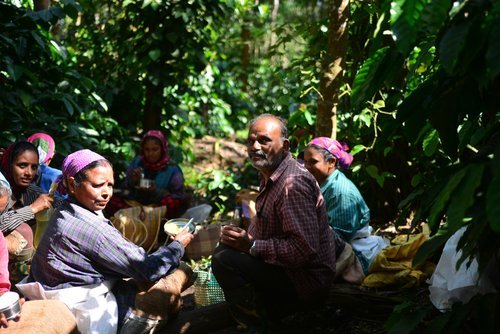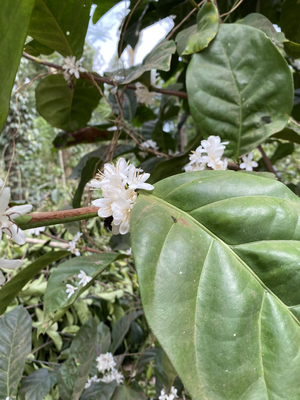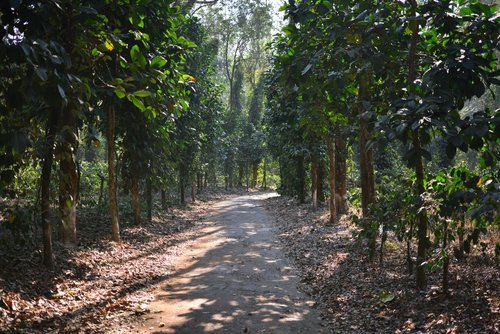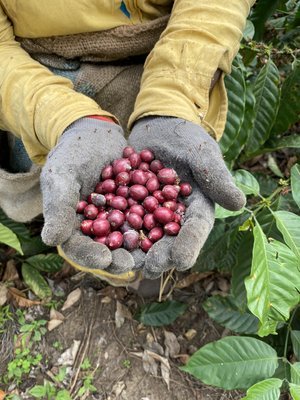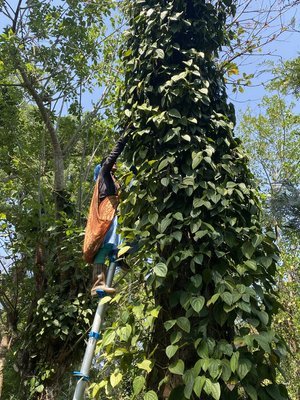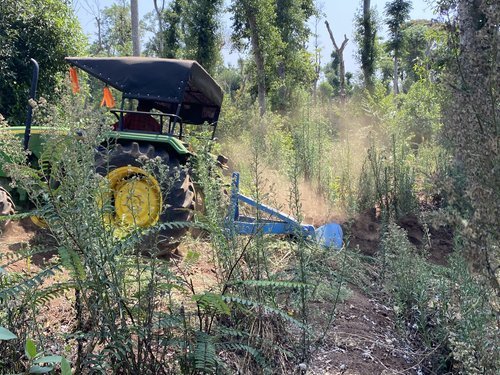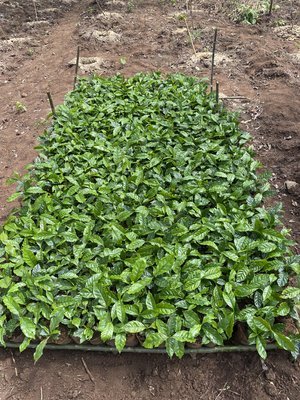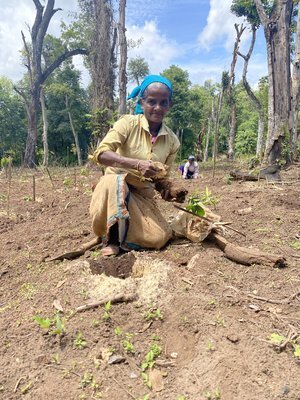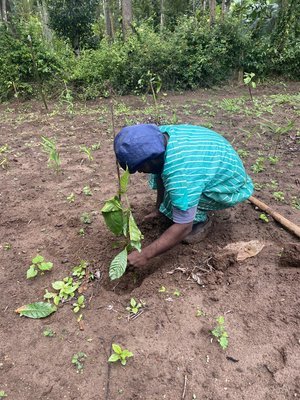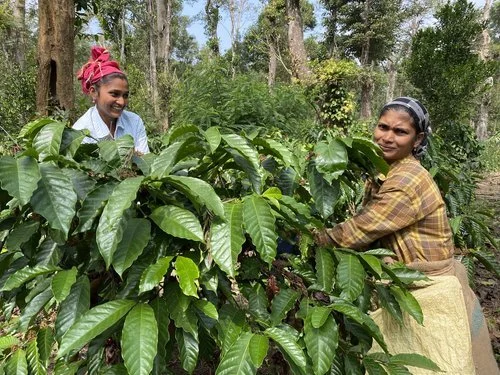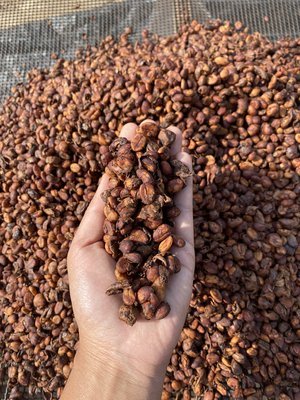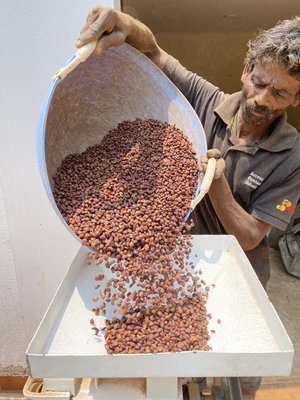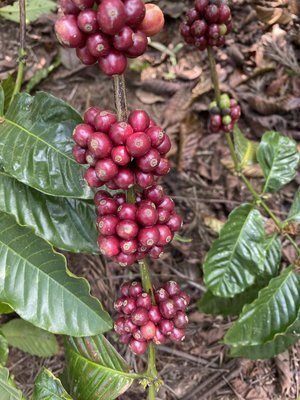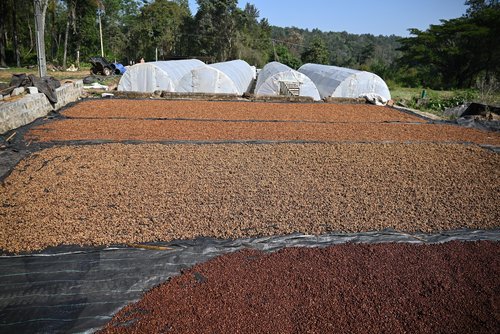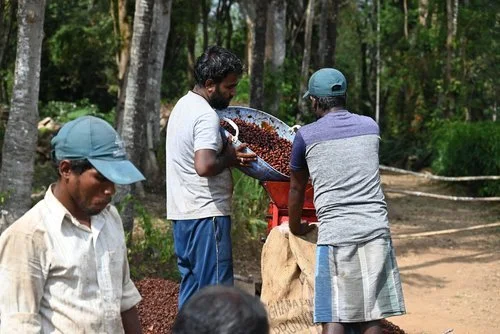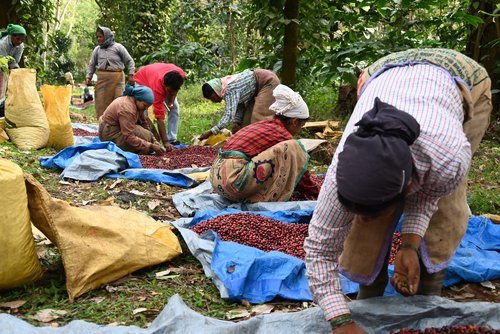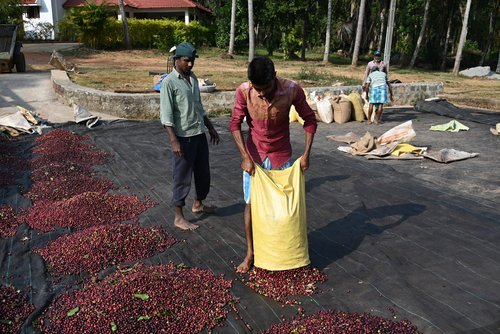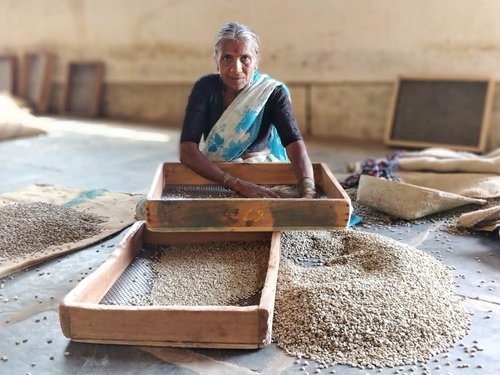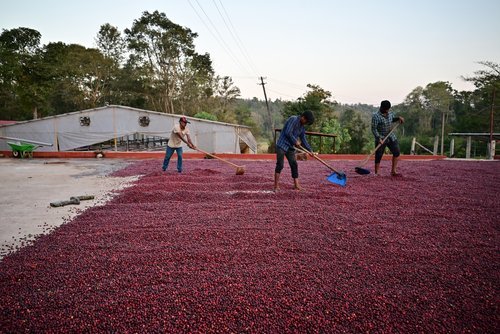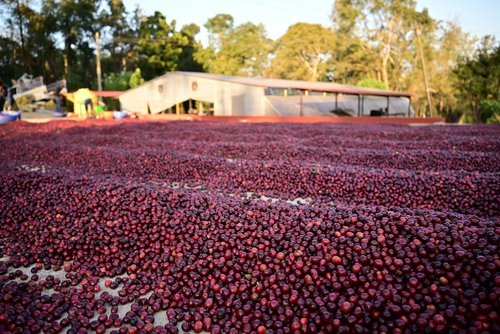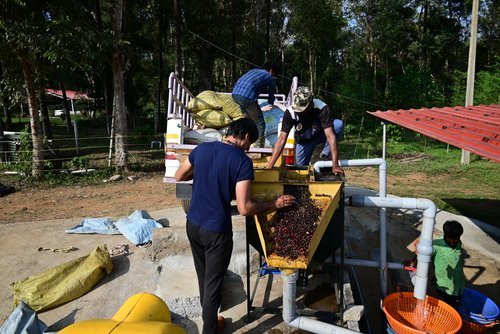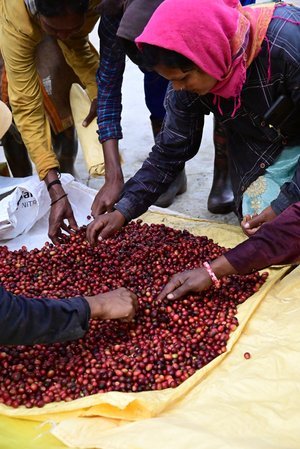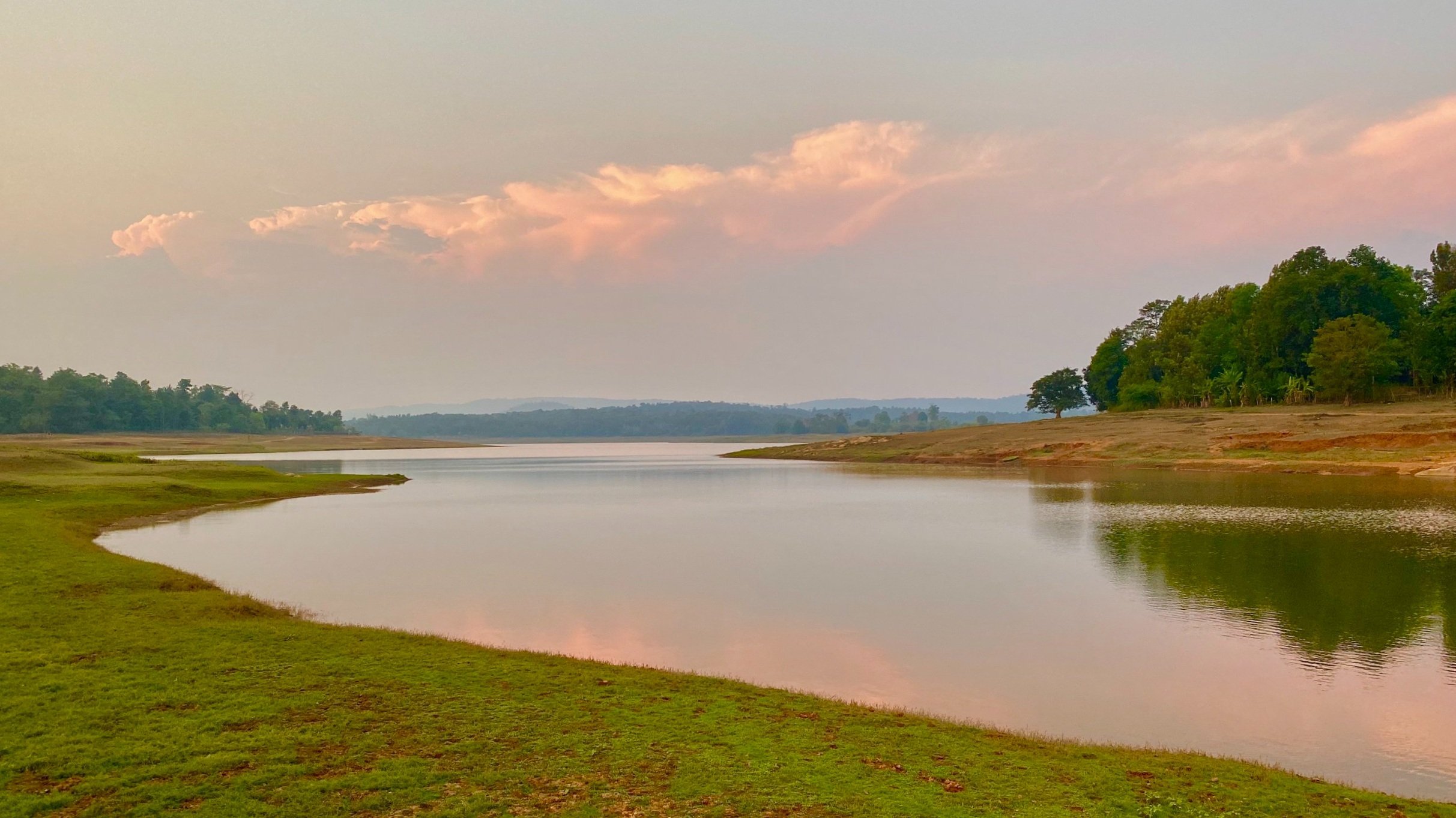Reviving coffee with data and other species
Mooleh Manay Estate is managed by Komal and Akshay, taken over from 4th generation coffee planter, Ms. G.G. Padmashree. Mooleh Manay estate is located near the beautiful backwaters of the Harangi Reservoir in Coorg, Karnataka. The producers take a data-driven approach to farming and coffee processing, believing that data is essential for optimizing agricultural practices and ensuring the highest quality coffee production. The farm uses meticulous processing methods and is not afraid to experiment to bring out the best the coffee has to offer.
Excitingly, they are becoming known for their species innovation: by rediscovering native species, introducing other lesser known species and grafting different species onto each other, this farm has a very unique and important role in making coffee climate resilient - for themselves, their community and possibly the world.
CULTIVARS
arabica - Chandragiri,
robusta - CxR and Old Peradeniya and
Excelsa
Elevation
900 - 1200 meters
NOTABLE
Most farms across Coorg have been growing Excelsa across the boundaries of the farms. This year the Excelsa community naturals were sourced from 4 different farms across Coorg,that included the Srirangalli community.
Excelsa
-
Excelsa beans are smaller and rounder than their more common counterparts. Local growers often group Excelsa with Liberica under the name "Mara Kaapi," meaning "Tree Coffee" in the local language. This overlooks the subtle differences between the two species.
Traditionally, coffee farms in India planted Excelsa trees along their borders. These trees served a dual purpose: marking the farm's boundaries and providing an additional source of income. However, many farms have removed Excelsa in recent years due to the challenges of harvesting and its susceptibility to berry borer if left unpicked.
SICC, however, see the potential of Excelsa for specialty coffee drinkers. With over 130 Coffea species the focus has primarily been on Arabica and Robusta. Excelsa offers a unique opportunity to explore a new species and new flavour profile.
Notably, Akshay's grandfather-in-law recognized these distinctions and always distinguished Excelsa for its characteristically fruity notes. Interestingly, even when prepared with milk, our traditionally washed (unfermented) Excelsa coffees retain their vibrant fruitiness. We have tested the Excelsa for its caffeine content which is 0.7% - 0.98% which is lower caffeine than Arabica. The most notable difference between Excelsa and the other 2 species is the harvesting. Harvesting Excelsa one needs to climb the tree with the help of a ladder and harvest the fruit from the branches. The sheer size of the tree makes it a challenge to harvest. The information about Excelsa or Liberica remains scarce and it does require further investigation. SICC are actively engaged in research to bridge this knowledge gap and document their own findings.
